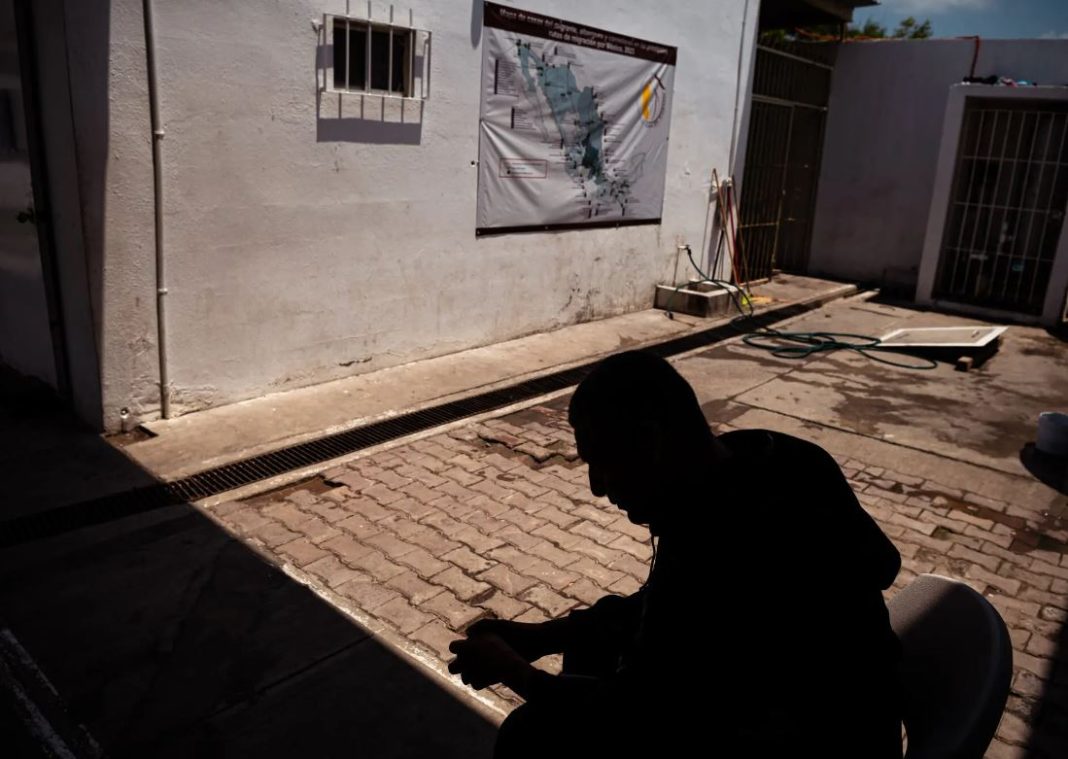Mexican authorities announced on Wednesday the successful rescue of all 31 migrants who were victims of a mass kidnapping near the U.S. border over the weekend. This follows an intense and urgent search operation involving the Mexican Army, National Guard, police forces, search-and-rescue dogs, and mobile phone signal tracing. The abduction occurred on Saturday night in the midst of an escalating kidnapping crisis in the northern state of Tamaulipas.
The migrants, hailing from Venezuela, Honduras, Ecuador, Colombia, and Mexico, were rescued after days of concerted efforts. The incident highlights the evolving challenges faced by asylum seekers and migrants in northern Mexico due to the current surge in migration toward the United States.
While tens of thousands of people gather near the border, awaiting an opportunity to present themselves at legal crossings using a U.S. Customs and Border Protection app, criminal cartels are exploiting the situation by engaging in kidnappings for ransom. President Andrés Manuel López Obrador acknowledged that while kidnappings have decreased nationally, criminal groups targeting migrants remain particularly active in states like Tamaulipas, San Luis Potosí, Nuevo León, and Coahuila.
Rosa Icela Rodríguez, Mexico’s security secretary, pointed out the atypical nature of the mass abduction in Tamaulipas, emphasizing that such incidents typically involve smaller groups. The kidnapping crisis in the region is becoming a lucrative revenue stream for criminal organizations, including the Gulf Cartel and the Northeast Cartel.
Jorge Cuéllar, the security spokesman for Tamaulipas, confirmed another incident where a bus traveling to Matamoros was attacked on Monday. Five Venezuelan passengers were held in a separate vehicle but were later rescued by National Guard officers.
These abductions persist despite Mexican authorities’ efforts to enhance border security in late December, a time when families on both sides of the border typically gather for holiday celebrations. López Obrador emphasized the need for secrecy in the investigation into the recent mass abduction, withholding specific details.
Colombia’s President, Gustavo Petro, revealed that four of the kidnapped migrants were Colombian citizens. Colombia’s embassy in Mexico is collaborating with Mexican authorities to secure their release.
Advocacy groups focused on the migration crisis argue that the incident underscores the pitfalls of shifting U.S. policies toward migrants. Stephanie Brewer, the Mexico director at the Washington Office on Latin America, highlighted how organized crime exploits migration as a business due to the absence of an available legal path for many migrants and asylum seekers.
Brewer explained that migrants, lacking legal alternatives, embark on the journey north on their own or pay criminal groups for passage across the border. As migrant smuggling becomes a lucrative business, so does migrant kidnapping. Criminal groups may abduct migrants for various reasons, such as traveling with or paying a rival group, failing to pay any group for passage, or as an economic proposition for extortion.
After the Title 42 rule, a pandemic-era border policy, resulted in the expulsion of many migrants from the U.S. to Mexico, Human Rights First documented at least 13,480 reports of violent attacks, including kidnapping, murder, torture, and rape on migrants and asylum seekers. While Title 42 ended last year, other migration policies keeping individuals in limbo in northern Mexico have made them vulnerable to organized crime groups.
Stephanie Brewer, who recently visited the Arizona-Mexico border, called for an end to policies that bottleneck thousands of people on the Mexican side of the border or force them into the hands of organized criminal groups in their quest for entry into the United States.
The mass kidnapping incident serves as a stark reminder of the urgent need to address the complex challenges faced by migrants and asylum seekers, calling for comprehensive solutions to ensure their safety and well-being amid the evolving dynamics in the region.

